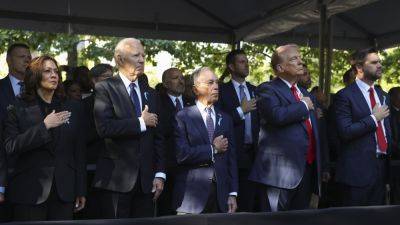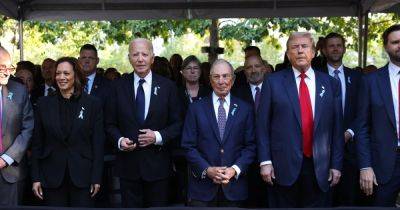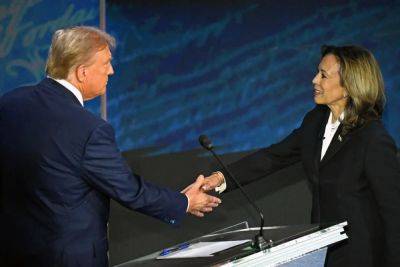From Clinton to Trump, how talk about crime has changed since a landmark bill
Thirty years ago this Friday, then-President Bill Clinton signed what amounted to the biggest federal intervention in crime and justice in a generation.
The 1994 Violent Crime Control and Law Enforcement Act paid to put more cops on the streets, imposed tougher sentences and provided federal funds to build more prisons.
In the years since, many of its architects have come to consider it a terrible mistake.
The conversation about public safety has changed a lot in the past few decades, said Nick Turner, who leads the Vera Institute of Justice.
“Crime is lower. Perceptions of crime are lower. People are more skeptical of tough-on-crime responses,” Turner said.
Violent crime still features in plenty of political attack ads this year. At this week’s presidential debate, former President Donald Trump highlighted offenses that he alleged had been committed by immigrants.
But the excesses of the justice system also got a mention, when Vice President Harris brought up the Central Park Five. Those young men were convicted, then later exonerated, for the brutal assault of a jogger in New York City back in 1989. They also took the stage during the Democratic National Convention this summer.
“The exonerated five were on stage acknowledging the depredations and the harms that can be caused, by a system that’s overly aggressive,” Turner said.
“Carrot and stick approach”
For all the talk about politicians being tough on crime or soft on crime, the federal government’s role in justice policy is limited. State and local authorities prosecute the vast majority of cases in the nation.
“Presidents do have a bully pulpit,” said Cully Stimson, a senior legal fellow at the Heritage Foundation. “Presidents can and should in my opinion spend a







